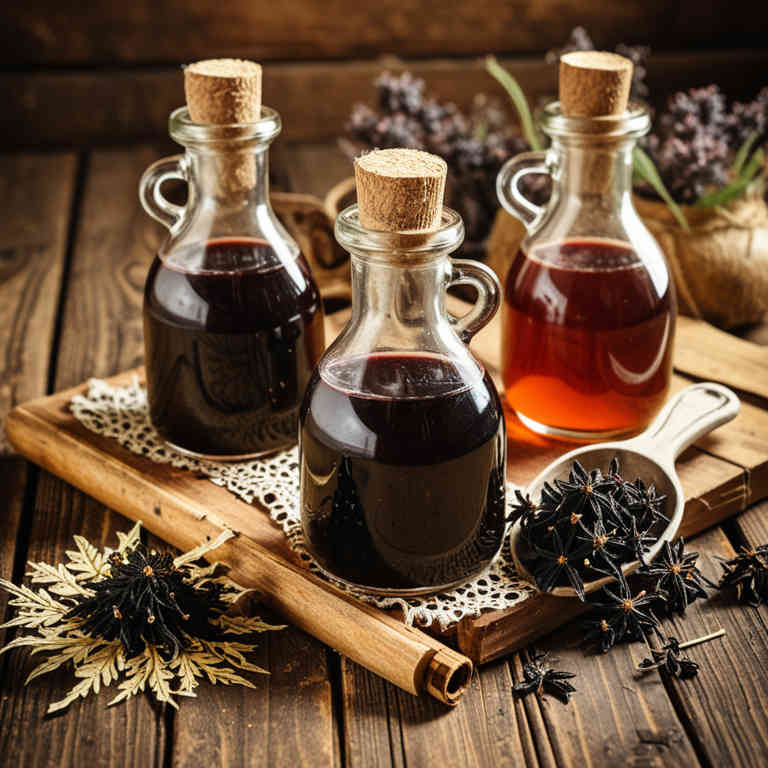Sambucus nigra syrup for medicinal use

Sambucus nigra syrup is a herbal preparation made from the berries of the European elder tree, commonly used in traditional herbal medicine.
It is typically prepared by simmering the ripe berries with sugar and water, resulting in a thick, aromatic syrup. This preparation is valued for its potential antioxidant and anti-inflammatory properties. In herbalism, it is often used to support respiratory health, alleviate coughs, and reduce fever.
It is also believed to have immune-boosting effects and is sometimes used in seasonal remedies.
Uses
Sambucus nigra syrup has been used to treat respiratory conditions, digestive issues, and as a general tonic for overall health.
Historically, it was valued in European folk medicine for its purported ability to alleviate coughs, colds, and flu symptoms. Traditional uses also included its application for reducing fever and as a remedy for skin infections. In modern times, it is often used as a natural remedy for sore throat, bronchitis, and to support the immune system.
However, it is important to note that while some of its traditional uses have been studied, its safety and efficacy for specific conditions should be evaluated by a healthcare professional.
Benefits
Sambucus nigra syrup has health benefits such as boosting the immune system, reducing inflammation, and supporting respiratory health.
It is traditionally used to alleviate symptoms of colds, flu, and coughs due to its antiviral and expectorant properties. The syrup contains antioxidants that help neutralize free radicals and promote overall wellness. It may also aid in digestion and has been used historically to treat fevers and skin conditions.
However, it should be used with caution and under the guidance of a healthcare professional, as it may interact with certain medications.
Constituents
Sambucus nigra syrup active constituents include flavonoids, mucilage, saponins, and essential oils.
These compounds contribute to its anti-inflammatory, antiviral, and immune-boosting properties. Flavonoids help reduce oxidative stress and support cardiovascular health. Mucilage soothes the respiratory tract, making it useful for coughs and colds.
Saponins may enhance the body's immune response and have antimicrobial effects.
Preparation
To make Sambucus nigra syrup, begin by harvesting ripe black elderberries and washing them thoroughly.
Next, place the berries in a pot and add enough water to cover them, then bring to a boil and simmer for about 15 minutes to release their flavor and nutrients. Strain the liquid through a fine mesh sieve or cheesecloth to remove the solids, then combine the liquid with sugar in a ratio of 1 part sugar to 2 parts liquid.
Finally, simmer the mixture over low heat until it thickens to a syrupy consistency, then let it cool before storing in a sealed container.
Side Effects
Sambucus nigra syrup may lead to gastrointestinal upset, including nausea, vomiting, and diarrhea, due to its high mucilage content.
It can also cause allergic reactions in individuals sensitive to the plant, manifesting as rash, itching, or difficulty breathing. Long-term use may interfere with blood sugar levels, making it potentially dangerous for people with diabetes. In high doses, it may have abortifacient properties, posing risks during pregnancy.
Additionally, it may interact with certain medications, such as blood thinners, increasing the risk of bleeding.